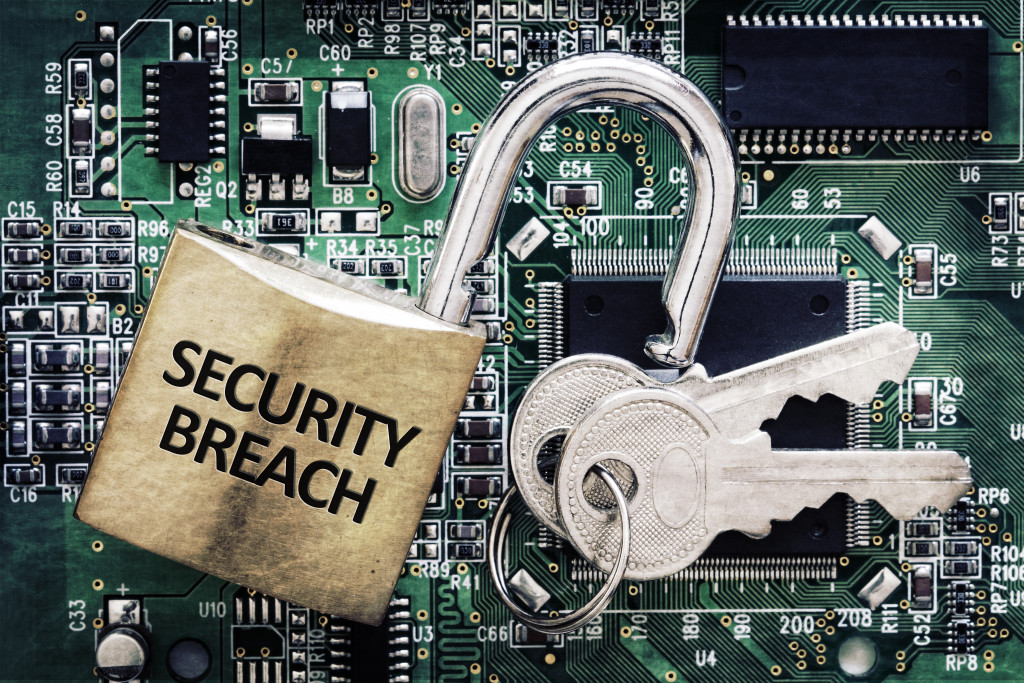- Malware, including viruses and ransomware, poses a significant threat to small businesses, often due to inadequate cybersecurity measures.
- The effects of malware attacks include data breaches, ransom demands, disrupted productivity, legal repercussions, and damaged reputations.
- Small businesses are particularly vulnerable to such attacks due to their reliance on outdated software and lack of recovery resources.
- Malware attacks can be mitigated by proactive measures such as regular backup of files, employee education, and software updates.
- Strong password policies and professional assistance are essential for enhancing small businesses’ cybersecurity infrastructure.
In today’s digital age, cybercriminals are increasingly adept at infiltrating company networks and stealing sensitive data. Small businesses are particularly vulnerable to cyberattacks as they often lack the necessary cybersecurity measures to protect their networks from malicious software. Here’s what you need to know about malware, how it affects small businesses and ways to stop it from hurting your business.
What is Malware?
Malware, short for malicious software, is any harmful software designed to disrupt or damage computer systems and steal sensitive information. This can include viruses, worms, trojans, spyware, adware, and ransomware.
How Does it Affect Small Businesses?
Cybercriminals often target small businesses due to their lack of cybersecurity defenses compared to larger companies. Once malware infiltrates a network, it can cause significant damage. Here are some of those ways:
1. Data Breaches
One of the most common ways malware can negatively impact small businesses is through data breaches. Cybercriminals can use malware to access sensitive information such as financial data, employee records, and customer details. This information can be used for fraudulent activities, identity theft, or sold on the dark web. Small businesses are desirable targets for hackers as they often rely on outdated software and hardware, making it easier to exploit vulnerabilities.

2. Ransomware
Another way malware can affect small businesses is through ransomware. Ransomware encrypts a company’s computer systems and demands a ransom payment for the decryption key. Small businesses are particularly vulnerable to ransomware attacks as they often lack the resources to recover from such an attack. This can result in significant financial losses, company reputation damage, and even bankruptcy.
3. Loss of Productivity
Malware can also have a significant impact on a small business’s productivity. An infected computer can cause slowdowns, crashes, and even complete system failures, leading to downtime and loss of revenue. Additionally, many small businesses rely on cloud-based software systems. If these systems become infected with malware, it can cause problems for all employees who rely on them daily.
4. Legal Consequences
Small businesses that suffer data breaches or other cybersecurity incidents can also face legal consequences. In some jurisdictions, companies must notify individuals whose personal information has been compromised, and failure to do so can result in fines. Additionally, if a company is found to have been negligent in its cybersecurity practices, it can face legal action from affected customers or other third parties.
5. Damage to Reputation
Finally, malware can have long-term effects on a small business’s reputation. Customers and clients might lose trust in a company that has suffered a data breach or other cybersecurity incident, leading to lost sales and damage to brand recognition. Rebuilding a damaged reputation can be costly and time-consuming, and small businesses may struggle to recover from the negative impact of a cybersecurity incident.
Ways to Protect Your Small Business from Malware
Fortunately, there are steps that small businesses can take to protect themselves from malware. These include:

Backup Your Files
You must regularly backup your company’s files, including databases and other critical data. In the event of a malware attack, you can restore your systems to a pre-infected state, minimizing damage and downtime. Consider investing in an online Synology cloud NAS backup solution for added security. This works by automatically backing up your data to a secure offsite location so you can recover it in case of an attack.
Educate Your Employees
Employees are often the weakest link when it comes to cybersecurity. Educating your staff on recognizing and reporting potential security threats, such as suspicious emails or links, is essential. Regular training sessions and reminders can go a long way in preventing malware attacks.
Keep Software Updated
Outdated software can leave your systems vulnerable to malware attacks. It’s essential to regularly update all software and applications your company uses, including antivirus programs and firewalls. This will ensure you have the latest security patches and updates to protect against new forms of malware.
Implement Strong Password Policies
Weak passwords are another common entry point for cybercriminals. Strong password policies, such as requiring employees to change their passwords regularly and use complex combinations of letters, numbers, and symbols, can help prevent unauthorized access to your systems.
The malware threat to small businesses is real and can devastate operations, reputation, and financial stability. However, companies can significantly mitigate these risks by proactively implementing preventative measures. These measures include regularly backing up files, educating employees, updating software, and enforcing strong password policies. It’s also advisable to seek professional help if necessary. Remember, investing in robust cybersecurity measures is not an expense but a necessity in today’s digital age.

